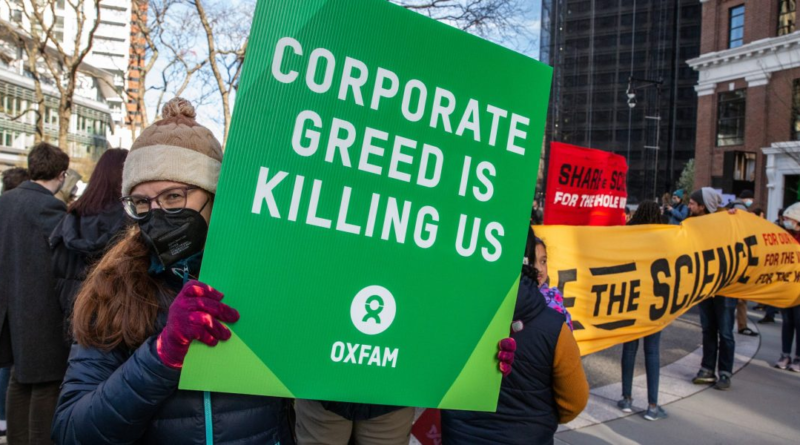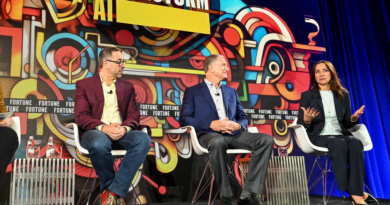Congratulations, you survived another tax season—and paid a higher rate than top American companies
Another Tax Day has come and gone. While everyday working people struggle to make their tax payments or hope for a small refund, corporate America continues to avoid paying their fair share, evading and limiting their tax payments through loopholes and legal maneuvers. The current system that supercharges this inequality is not an accident; it is written into our tax code and is manipulated by corporations and billionaires. With many of the 2017 “Trump tax cuts” set to expire, the time is now to curb the corrosive concentrations of extreme wealth and corporate power, and to fairly tax companies and the astronomically wealthy so that next Tax Day, the divide is not so wide.
The statutory corporate tax rate in America is a mere 21%, which dramatically declined from 35% under the Trump administration. But far too many companies pay far less than this already low rate. Oxfam’s recent analysis of the 200 largest public companies in the U.S. finds that effective tax rates—the amounts companies actually pay—vary greatly.
The pharmaceutical industry pays the lowest, with an 11.6% effective tax rate in 2022, and some of the largest Big Pharma companies paid even lower. For example, Pfizer paid 6.8% and Abbvie only 5.9%. The tech sector closely follows pharma, with companies like IBM, Intel, and Nvidia all reporting profits in 2022 yet paying zero income taxes. Instead, all received a tax credit (IBM: $626 million; Intel: $249 million; Nvidia: $187 million).
This is far lower than what the average American pays, putting the tax inequality into stark relief.
Corporate tax havens
Of the 200 companies Oxfam analyzed, only 22% have published statements and policies of responsible tax practices. A closer look reveals that the specificity, scope, and ambition of these policy statements vary greatly. Few contain provisions for the most important assessment categories, including the use of tax havens and internal structures for the accountability and governance of tax planning. Nevertheless, these policies are an important indicator, as we also found that companies sharing them are less likely to operate in tax havens. In fact, 82% of companies in the analysis have a presence in at least one identified tax haven.
Evidence suggests corporate income tax is progressive since shareholders, who are predominantly at the top of the income distribution, bear most of the tax burden. By minimizing their tax burden, companies can increase profits, which typically reward corporate executives and wealthy shareholders at the expense of not only their employees but broader public services systems as well. These tax minimization strategies aggressively sustain wealth disparities, making them one of the most significant corporate practices that enable and contribute to inequality. Case in point, the combined net profits of the top 200 U.S. corporations soared to $1.25 trillion in 2022, a 63% increase from combined net profits in 2018. To add, 90% of these profits (more than $1.1 trillion) are paid out to wealthy shareholders—more than any time in the history of these companies.
We know that when corporations and wealthy individuals aren’t taxed appropriately, low- and middle-income Americans pay the price. Taxing corporations fairly is a crucial step toward tackling billionaire excess, reducing today’s pernicious inequality, battling the climate crisis, making infrastructure investments, and providing critical essential services. Corporate taxation, or its lack thereof, can fuel inequality—as it currently does—or reduce it when used for essential public services and social programs that benefit low-income groups.
A more equitable tax code
Tax revenue also helps provide the backbone for goods and services (e.g. infrastructure, the education system) that companies rely on to be successful. While a company’s strategy to minimize tax payments may reward corporate management and shareholders in the short term, such strategies often come at the cost of exacerbating income inequality and hindering long-term value creation.
With many of the Trump tax cuts set to expire at the end of 2025, Congress should use the opportunity to work toward a tax code that is more equitable and supports investments that make the economy work for everyone. Specifically, Congress must ensure that this overhaul is used to bring the corporate tax rate up to at least 35%; put an end to the loopholes and tax breaks that companies so often abuse; and end corporate tax secrecy by ensuring all multinational companies publish tax transparency reports (including financial details) for every country in which they operate.
More immediately, taxes remain a top-of-mind issue as we approach the general election. Promises regarding further tax cuts for the wealthy have been a key element of Donald Trump’s presidential campaign, while tax increases for corporations are included in President Joe Biden’s. Trump’s plan is predicted to increase the cost of living for lower- and middle-income Americans to offset breaks for billionaires. The truth is that any federal policy that leans on tax cuts for wealthy individuals and corporations is one that will further inequality in this country.
On future Tax Days, corporations and billionaires must begin to pay their fair share. The battle against extreme inequality depends on it.
Irit Tamir is Senior director of Oxfam America’s Private Sector Department.
More must-read commentary:
The opinions expressed in Fortune.com commentary pieces are solely the views of their authors and do not necessarily reflect the opinions and beliefs of Fortune.




